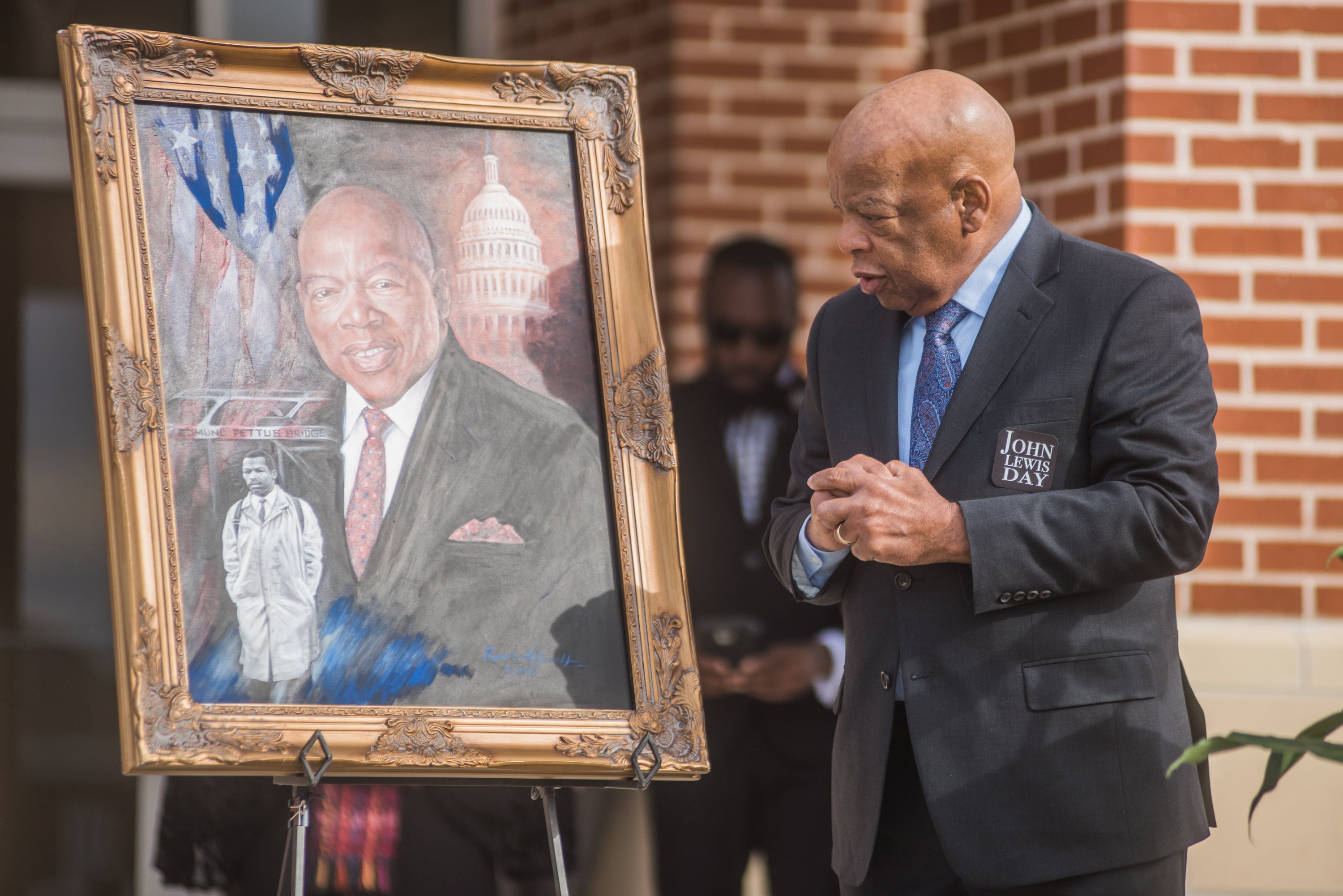John Lewis diagnosed with Stage 4 pancreatic cancer
Published 10:12 pm Monday, December 30, 2019

- Messenger photo/Jonah Enfinger
|
Getting your Trinity Audio player ready...
|
As a civil rights activist at 25, John Lewis was beaten so badly his skull was fractured and the TV images from an Alabama bridge in the 1960s forced a nation’s awakening to racial discrimination. As a congressman today at 79, Lewis is facing a foe like none before: advanced pancreatic cancer.
The veteran Democrat congressman from Georgia has fought many struggles in his lifetime. Yet, he said, “I have never faced a fight quite like the one I have now,” announcing Sunday in Washington that the cancer was detected earlier this month and confirmed in a diagnosis.
Lewis is a native of Pike County, attending school in Brundidge.
Brundidge Mayor Isabell Boyd said the prayers of the Brundidge community are with Lewis for a speedy and healthy recovery.
“Congressman Lewis is a fighter,” Boyd said. “He has won many battles and he will win this one, too. Our hearts and prayers go out to him and his family.
“Congressman Lewis is one of us. He graduated from Pike County Training School here in Brundidge and we have a street named in his honor. He has dedicated his life to making our country better for all of us. It is our turn now to pray for him to overcome this diagnosis and come back stronger than ever.”
Although he is from rural Pike County, Martin Luther King Jr. famously referred to Lewis as “the boy from Troy,” and the city held John Lewis Day in his honor on Feb. 3, 2018.
“As was expressed during the bicentennial, we’re very proud that John Lewis is from Pike County,” said Troy Mayor Jason Reeves. “This is very difficult news. We appreciate his place in history and all that means to so many. He is a very strong Christian and I know that will serve him well in this battle.
“I grew up in a rural part of Pike County not far from where Congressman Lewis did. I’m close to his nephews and brothers; we played ball together. His brother Grant coached me in baseball. Having someone of his stature from the little part of the world that I’m from is very special to me. I greatly admire what he did in the struggle for Civil Rights. We’re certainly praying for Congressman Lewis and his family.”
Lewis said being elected to Congress “has been the honor of a lifetime” and that he will continue working for his constituents from Capitol Hill.
“I have been in some kind of fight — for freedom, equality, basic human rights — for nearly my entire life,” he said.
Added Lewis: “I have a fighting chance.”
He declined to say where he would receive cancer treatment or what that would entail. But he said he may not always be around the halls of Congress in the coming weeks.
“I may miss a few votes during this period, but with God’s grace I will be back on the front lines soon,” he said in asking for prayers.
Lewis also said he was “clear-eyed about the prognosis” even as doctors have told him that recent medical advances have made this type of cancer treatable in many cases. He added that “treatment options are no longer as debilitating as they once were.”
The American Cancer Society estimates 3 percent of patients with stage 4 pancreatic cancer are alive five years after being diagnosed.
Sometimes called the “conscience of the Congress,” Lewis led hundreds of protesters in the 1965 Bloody Sunday march across the Edmund Pettus Bridge in Selma, Alabama. He was at the head of the march when he was knocked to the ground and beaten by police. The nationally televised images forced the country’s attention on the racial inequalities being fought by King and so many others.
Lewis turned to politics in 1981, when he was elected to the Atlanta City Council.
In 2011 he received the Presidential Medal of Freedom from President Barack Obama, who had marched with Lewis hand in hand in Selma on the 50th anniversary of the Bloody Sunday attack.
The Associated Press contributed to this report.



